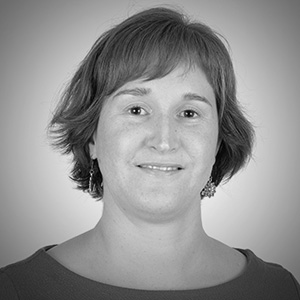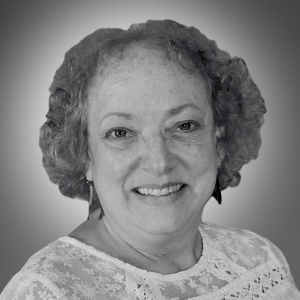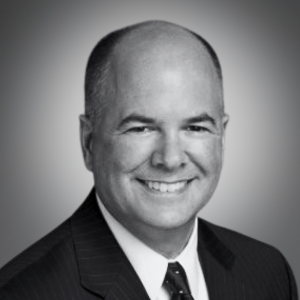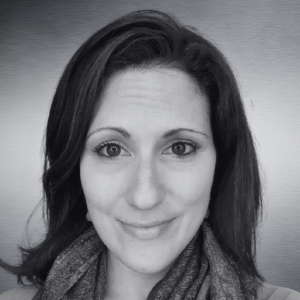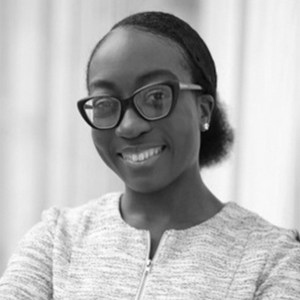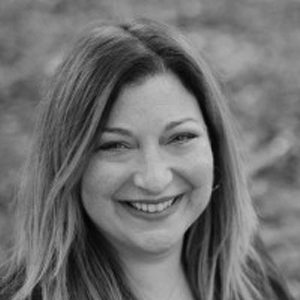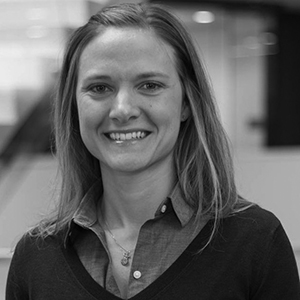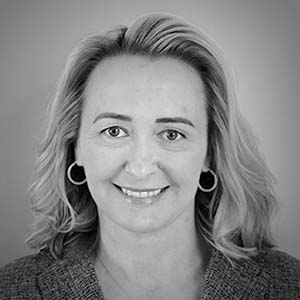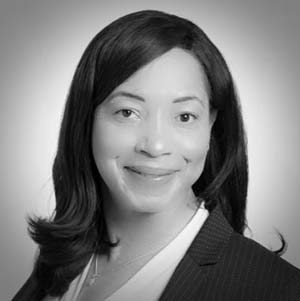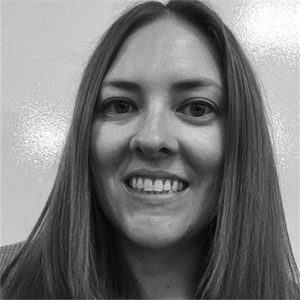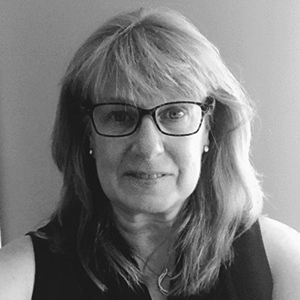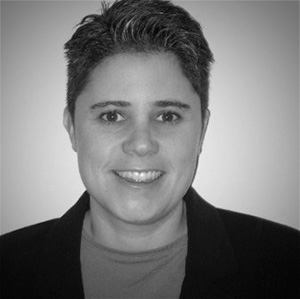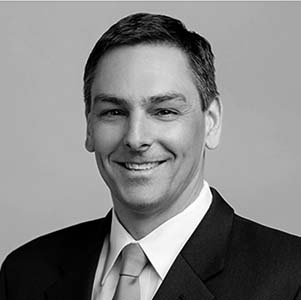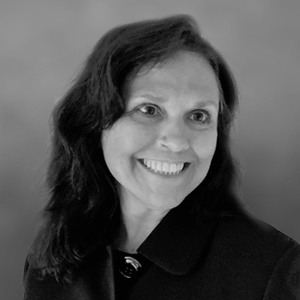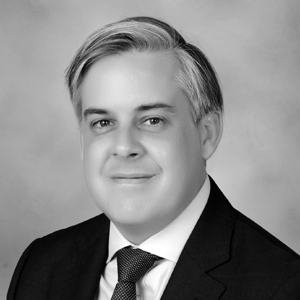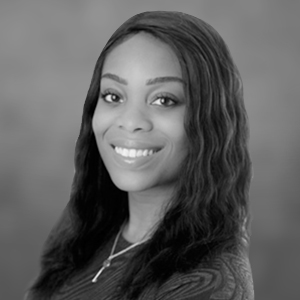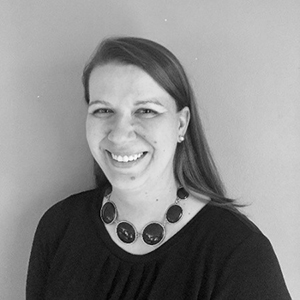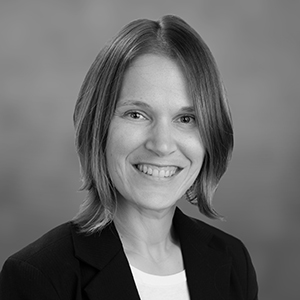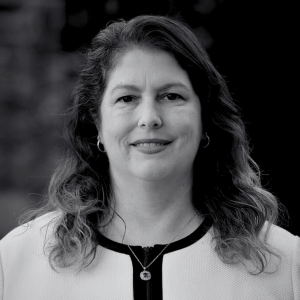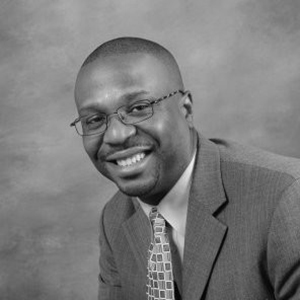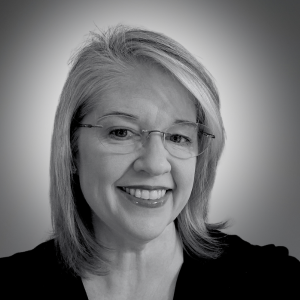
Ripplers are constantly learning, training, and jumping into new opportunities to improve, both professionally and personally.
As part of Lifelong Learning Month, we recently hosted a Roundtable to learn more about some of our brightest learners from all across our company build skills, work smarter, and perform better.
Whether you’re a scientist, designer, communicator, recruiter or IT analyst, we’re sure you’ll learn something valuable from this group interview (and maybe even learn a few fun facts about our people along the way.)
Meet Our Roundtable
Our interview featured Ripplers from all across capabilities and levels of experience. See yourself in any of our people? Inspired by something you read? Connect with them on LinkedIn—their bios are linked below.
Margie Beaudry, Senior Healthcare Project Director
Amanda Crinks, Scientific Project Manager
Eli Crutchfield, Human Resources Intern
Anne Deschamps, Science Policy Project Director
Sarah Fontaine, Science Officer
Jackie Helfer, Talent Acquisition Manager
Forrest Hoffman, IT Specialist
Michaela Johnson, Executive Assistant
Andrea Richardson, Junior Communications/Recruiting Specialist
Kat Small, Instructional Designer
Ashley Swanson, Science Officer
Evan Wowk, Senior Graphic Designer
The Questions
Welcome to the Roundtable! Let’s start simple. How did you come to Ripple Effect?
Margie Beaudry: In 2009, I was doing temporary contract work at NIRN, and an influential scientist there was working with Amy Bielski on another project. She sent Amy my resume when she heard my assignment was ending and I had an offer three days later.
Amanda Crinks: I was working in an IT-focused position for a government contractor and was looking to change industries. I really wanted to get back to my passion for health care and the sciences, so when I came across Ripple Effect’s listing for a scientific project manager, I jumped at it.
Michaela Johnson: Before Ripple Effect, I worked as an executive assistant at Gallup in Washington, DC. I was looking for a challenge: to find an EA position that offered more than just handling calendars and emails. I was drawn to Ripple’s culture of being flexible, less strict and ‘corporate,’ but fast-paced. And that’s exactly what I’ve found.
Andrea Richardson: I worked in HR for a couple years, but my background is communications—so I wanted something that aligned with that. So, I left my company and went on a search for something that catered to my strengths, and with a company I believed in.
Evan Wowk: After working for Lockheed Martin for 9 years, I took a year to freelance for myself. That was great, but made me crave a team environment again. I saw a graphic designer posting with Ripple, so I applied and came in for an interview. I loved that the team was small but growing, and knew it would be a great place to bring my creativity and experience.
Kat Small: In college, I wanted to write textbooks. I’d never heard of instructional design until I started my first job as a technical writer and editor, but my supervisor saw my interest and encouraged me to switch roles. Lucky for me, Ripple’s clients need instructional designers!
Eli Crutchfield: I finished my undergraduate degree last year. At the time, I was the assistant manager at Kids First Swim School, but was looking to break into the HR field. When I saw a job posting for an intern position at Ripple, I applied. They hired me quickly, and I’ve been diving in ever since.
Forrest Hoffman: About four years ago, Ripple Effect reached out through a mutual friend and asked me to come solve an IT and network problem. I solved it, documented it, and shared with them. They liked my work enough to come back with a part-time offer, and after some normal back-and-forth, they eventually offered me a full-time position. (I accepted. Here I am.)
Ashley Swanson: I came to Ripple Effect after finishing up a postdoc at NIH. After spending over a decade in different research labs, I realized that what I loved about working in science was giving presentations, designing posters, slides, and infographics, writing, and communicating findings to people without scientific backgrounds. As a Science Officer supporting CDMRP, I’ve found that sweet spot.
Sarah Fontaine: After leaving academia, I took a bit of time to rethink what I wanted and needed out of a career. I needed to be working in science, but I didn’t need to be at the bench anymore. I also needed a better balance in life. I was applying for a bunch of non-academic scientific positions when I landed an interview with Ripple Effect; they hired me as a Science Officer at CDMRP, and now I sit next to Ashley every day!
Jackie Helfer: When I heard of Ripple Effect through a friend, I was working at a specialty finance company, but really wanted a job that aligned more with my values. I wanted to go home after work every day feeling like I was taking a step towards something better, and feel good about helping a company reach its goals. I interviewed with Ripple, and after an initial stint working as a client-site contractor, I made a jump to an internal recruiting role. I felt connected to Ripple’s mission and wanted to make a difference at a bigger scale. Ever since then, I’ve made it my mission to bring in people who want to do the same.
Is this where you thought you’d end up in your career?
Michaela: No, I was an English literature major and wanted to go into publishing. But working in HR and executive support with Tierra, I realized I was good at this.
Forrest: My training is in electronics and computer systems, everything from engineering, networks, to setting up computers. I had a vision this would be a good line of business a long time ago, and that electronics would support me. So, yes?
Amanda: I never planned to be in government contracting, but I have been very happy that it led me to Ripple Effect.
Margie: Many years ago, I stopped guessing about where I would end up in my career, so I guess the answer to that question is “no.”
Kat: I assumed I’d stay a writer/editor, but I’m not surprised that I ended up working on training materials!
Sarah: This position is a pleasant and completely different track than I thought I’d be on, but I’m happier and more engaged without all the added imposter syndrome and academic pressure.
How do you learn best?
Evan: I’m definitely visually-oriented (shocker) and also love to be hands-on with a team of talented creative individuals. I pick up a lot from watching others.
Jackie: Hands-on. Then, let me talk through it or teach it to someone else. That helps me solidify my understanding of something new.
Ashley: I learn best by doing. I usually need to work through things on my own first, and then it will click.
Kat: I don’t have one learning method that works best for me, although I usually have better recall of information that I’ve read rather than heard. I think it’s fun to learn a new skill by jumping in and giving it a shot.
Amanda: I am a hands-on learner and I take copious notes. I have always been the type of person who creates SOPs and resource documents for myself if they don’t exist.
Forrest: By doing. As a kid, I’d pull my toys apart, see the springs and gears inside, and figure out how it works. I’ve always had that desire. That said, I am always one to read the instruction manual so I can evaluate it and ask, “Can it be written better?”
Margie: Visual and auditory. I memorize movie scripts without even trying.
What’s one skill you’ve learned while at Ripple?
Eli: Interpersonal skills—being able to communicate in a professional, personal manner can go a long way! And time management, for sure: Transitioning into an office environment demands that you prioritize tasks and time.
Ashley: I’ve learned the importance of communicating not just the good, but also things I’m struggling with. No one can help if they don’t know anything is wrong. I love working for a company that gives me room to make mistakes, but still sees the value I bring to the table.
Kat: I hosted my first podcast!
Evan: Working virtually, and collaborating with a team from afar. It’s forced me to be clearer in my writing, and to see the full picture of projects—where the dependencies are, who’s responsible for what, and how it all comes together.
Michaela: I knew nothing about HR—software, the intricacies of onboarding and managing new employees. And technology: Go-To Training, SharePoint, Paylocity, and Deltek, especially…I’ve gotten better at time sheets than I ever would have hoped for.
Amanda: Learning how to do oral presentations for a proposal. This was intimidating the first time, but our leaders were a terrific support system! The other skill is program budgets: I’ve learned more than I ever could have dreamed about formulating, managing, and communicating budget information.
Forrest: Mentoring. We had a junior IT employee for a couple years who started assisting me with help desk requests and SharePoint. I started showing him the ropes, sharing tidbits about how to use hot keys and shortcuts, hidden functions, and explaining the strategy and rationale behind why something is done a certain way. Teaching him helped me immensely.
What’s the best course/class you’ve ever taken?
Andrea: My Senior Seminar course during undergrad. I created a social marketing campaign from a topic of my choice: changing attitudes and behaviors towards engaging in interracial relationships. It was the most creative I have ever been! I designed what the campaign would look like, developed all of the research questions for participants, built the survey, analyzed the results; I learned so much about what I could do and how communications can influence attitudes and actions of others.
Margie: An undergraduate course on Dostoyevsky. It was in the Russian department, but it counted towards my English/Psychology major. The course pushed me to see universal humanistic themes in literature, even where I least expected to find them. It also pushed me to write well in order to make my point come through.
Anne: My favorite class in grad school was medical physiology, and I actually took it with the medical school students. I particularly enjoyed the section on endocrinology; it amazed me how the human body regulates itself so well when it’s working correctly, and how easy something can go wrong when it’s not.
Ashley: I always loved my music classes, like Orchestra and Jazz. I’ve played the trumpet since I was 9, and my music classes taught me how to be disciplined, tenacious, and analytical, and provided an outlet to be creative.
Eli: Philosophy 101. I’m a fanatic, and that class was the doorway. I enjoy thinking about theories of how society operates, and how those ideas have been analyzed and challenged by philosophers of old and new.
Michaela: Acting 101. There were eight people in the class; it was so out of my comfort zone, but I think it’s the best class I ever took. I do play-writing, so it was insightful to talk in front of people and understand emotion from the actor’s point of view.
Jackie: It wasn’t a class, per se, but Ripple recently brought in a speaker to deliver a “Crucial Conversations” training a few weeks ago. It opened up my eyes on how to approach high-stakes conversations in a way that creates openness, eliminates fear, and allows people to move forward. I use the skills from this training in every area of my life.
What’s one skill or expertise that you wish you had?
Kat: Knowing Ancient Greek. I opted out of taking the classes in college because the alphabet intimidated me, but I’ve regretted it ever since.
Andrea: How to run a business, how to keep employees engaged and inspired, and how to build and operate a company budget.
Evan: I wish I could dunk from the foul line.
Ripple: Come on.
Evan: In all seriousness, I could be better with Adobe After Effects—taking animations and motion graphics to a new level.
Michaela: Same here! Being able to capture a room—I wish I had that.
Anne: I wish I could sing.
Sarah: I want to learn to code, and it would be great if I was a little more computer/tech-literate.
Forrest: I can help…
Ashley: Being multi-lingual. I love talking to people, hearing their stories, and discovering shared experiences. Being able to overcome language barriers would open up so many more opportunities to connect with others.
What are the essential skills for someone in your position?
Sarah: Organization, self-motivation, time management, and a good flexible sense of how to quickly assimilate knowledge and put it in the big picture. Attention to detail is also important.
Jackie: Second that! Attention to detail, clear communication, and the ability to make decisions.
Eli: Time management, being detail-oriented, and punctuality.
Jackie: You are always on time, Eli!
Michaela: Being able to keep track of little details that are easy to overlook, but later on will burn you if you skip them. Being able to stay focused during the dry tasks, which is hard when you’re the first face behind the desk people see when they walk in. And being able to pick up where you left off after being interrupted.
Margie: Absolutely. We all get interrupted far too much these days.
Evan: Be creative, open-minded, and be willing to evolve and grow with industry trends.
Andrea: I’d say flexibility, taking initiative, and meeting deadlines.
Forrest: Patience and persistence. Patience in not assuming too much about people, realizing that not everyone is on the same technological level. Persistence in when you’re trying to explain something, you have to be able to pick up on when the message has been received and when you’ve been successful.
Kat: It’s hard to learn about a topic you don’t care about or to design training on a topic you find tedious. So being able to find something interesting about almost anything has been essential for me.
Amanda: The ability to learn from mistakes, and admit when you make them. There will always be road bumps, but when you know you’re making decisions with the best interests of others at heart, no matter what happens you have to trust your gut, be honest with yourself, and learn from the mishaps.
Favorite Book? Podcast? Movie? TV Show?
Margie: So many favorites! This Perfect Day (Aldous Huxley), People of the Book (Geraldine Brooks), and The Brothers Karamazov (Fyodor Dostoyevsky.)
Andrea: My favorite book is The Great Gatsby. There are so many hidden Easter eggs that F. Scott Fitzgerald embeds in the text surrounding the characters, emotions, and the time period.
Eli: The War of Art—not to be confused with The Art of War (which is also a great read.)
Ashley: It’s hard to choose a favorite, but one of the most impactful book for me was The Last Lecture by Randy Pausch. My dad heard him talk and bought me the book when I was going through a particularly difficult time in my life. I still re-read it when I’m looking for inspiration, struggling with how I can be more beneficial, or want to shift my thinking.
Kat: So far, this year’s favorite books are Illuminae, Gemina, and Obsidio by Amie Kaufman and Jay Kristoff. Some of my long-time favorite authors are Margaret Atwood, Tanith Lee, Megan Whalen Turner, and Terry Pratchett
Forrest: I love sci-fi movies and space—Interstellar, Sunshine, Contact—movies that question where our civilization is going and adapting towards. That fascinates me.
Michaela: I re-read Tuck Everlasting every August. I’ve read Pride and Prejudice probably 20 times. I love Agatha Christie, and love the classics.
Amanda: WorkLife with Adam Grant is my favorite podcast, and my favorite book is probably Leaders Eat Last.
Sarah: Pride and Prejudice is so great. Podcast, hmm…my favorite is probably Armchair Expert with Dax Shepard.
Jackie: I love the Crimetown podcast. I’m from Rhode Island, so it really hits home.
What’s a hidden talent or hobby of yours?
Evan: Basketball—it’s all I did through high school and college, and I played at the divisional level. I was a guard.
Andrea: Oh, hence the dunking comment earlier!
Evan: Exactly. But the jump shot hasn’t gone away.
Amanda: I’m not too shabby at bowling…my high score is 210.
Anne: Wow, that’s high!
Eli: While we’re on sports…I’m the offensive line coach Kennedy High School’s varsity football team, and the shot put/discus coach for DeMatha Catholic High varsity track & field team. I’m teaching myself the electric guitar, too, so that’s definitely a hidden talent for now.
Anne: I love baking, especially cupcakes, although I don’t get to do it as frequently as I like.
Michaela: Playwriting for me. I started in college, and submitted entries to Baltimore’s Arena Players. I submitted for one competition, got selected, and they put on a production of my play. It was surreal.
Margie: That’s incredible! I have some musical theater and operetta in my genes…
Sarah: My secret skill is ALWAYS knowing where something is. I have an odd knack for noticing and remembering the location of objects: keys, where literally every food item is in our house, where the kids’ toys are, how the lab freezers were organized, etc. It’s a gift and a curse.
Forrest: Working with my hands and building things. Right now I’m involved with reviewing tools and products (I get them for free, so that’s a perk.)
Ashley: I’ve been boxing for 4 years. I started in my postdoc when I was looking for a way to build confidence, learn some self-defense, and get in better shape. I fell in love with it, and saw a huge physical and mental shift. It’s what inspired me to start a nonprofit that provides affordable fitness access to survivors of assault.
That’s all! Thanks so much for sitting down with us and sharing your stories.
We hope you found this Roundtable fun, engaging, and helpful. Please comment with any questions you have, and if you see yourself as a lifelong learner and future Rippler, please visit our Careers page and apply for an open position. We’ll see you next time!




